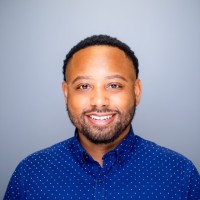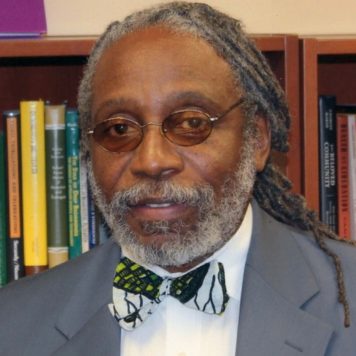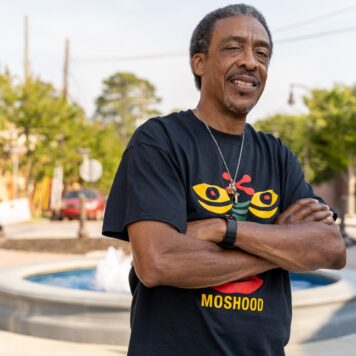Gabriel Maldonado is the CEO and founder of TruEvolution, a nonprofit organization based in Riverside, California, which is committed to fighting for HIV/AIDS health equity and prevention in communities of color. In addition to advocating for the prevention and end of HIV nationwide, he also served on the Presidential Advisory Council on HIV/AIDS (PACHA) from 2015 to 2017.
Your career has focused on improving HIV-related health outcomes in marginalized populations like communities of color and the LGBTQ+ community. What drew you to this line of work?
Like a lot of people who start off in this work, we did it to heal and liberate ourselves. As a young person of color growing up in Compton in the nineties, I was surrounded by a whole host of social, environmental justice, and health-related issues in my own backyard. As you get older, and as I grew more into my identity as a queer man, you follow your own yellow brick road journey of self-discovery, and that often informs your activism in your work.
You founded TruEvolution to fight for health equity and racial justice, especially in communities impacted by HIV. What led you to found this organization, and what services does it provide to fulfill this mission?
I founded this organization in 2007 with a group of undergraduate students at the University of California Riverside, and we just celebrated our 15th anniversary at the end of last year. Initially, our organization started as an advocacy group. In 2014, we transitioned into a direct service provider, beginning with HIV, STDs, and infectious diseases. We then moved into mental health, where we provided support groups and one-on-one clinical therapy with either a Licensed Marriage and Family Therapist (LMFT) or Licensed Clinical Social Worker (LCSW), couples therapy, and family therapy. Next, we entered the housing space. We have been housing providers under our city’s HOPWA (Housing Opportunities for Persons with AIDS) program andfor the last five yearswe have provided emergency supportive housing through hotel and motel vouchers. Most recently, we moved from being housing providers to housing developers. Our newest work is to build transitional and permanent supportive housing for people who are homeless, with a focus on those living with HIV, LGBTQIA+ youth, and LGBTQIA+ seniors.
Despite a consistent decline in new HIV diagnoses in the U.S. overall, in 2020, 42% of all new HIV diagnoses were among Black people, despite comprising only 14% of the population. From your perspective, what drives this disparity?
Frankly, Racism. The racist, patriarchal, homophobic, sexist, and misogynistic system that has existed in this country since its founding places people who are from communities of color—as well as immigrants, women, and members of the LGBTQIA+ community—in a position of oppression where the system was not designed for us. All of the systems that have been created from this foundation—our healthcare system, our housing system, our police, and the criminal justice system—disproportionately burden and harm people of color, specifically Black Americans, in this country. HIV is no different.
When we look at the intersections of HIV impacting the Black community, you also see the disparities in access to primary care, mortality rates for pregnant women, housing access, food insecurity, geographic isolation, and rurality for a lot of Black Americans in this country.
These are some of the basic fundamentals of survival in our country, and it is obvious that Black Americans have continued to be kept out of these opportunities. All this snowballs into a variety of health disparities, HIV being one of them.
Can you tell me a bit more about TruEvolution’s PrEP programs and what strategies you have seen to be effective?
Our region, the Inland Empire – Riverside and San Bernardino Counties, has a very different PrEP uptake than other counties throughout the state of California. Many functional barriers prevent a lot of people from accessing PrEP in our area. For us, the real focus is on PrEP education, helping people navigate their insurance, and familiarizing PrEP as a concept. For a lot of people living in a very religious puritanical environment, the concept of PrEP means giving them permission to do things that their families and their churches would otherwise say that they shouldn’t.
Helping people overcome the shame associated with PrEP and sexuality is a big part of our work. Therefore, a big part of what we do is education—from hosting PSAs and symposiums to bringing guest speakers, to having talks from clinicians or experts.
Linkage to care is the other focus of our PrEP work. Our region is 28,000 square miles, which is bigger than five states in the U.S., so people may live far from their nearest healthcare center. They don’t always have access to the tools for telemedicine, so that also can be a barrier. Consequently, linkage to care is very complicated in the Inland Empire.
February 7th is National Black HIV/AIDS Awareness Day, which serves as an opportunity to highlight the deep health disparities among Black Americans living with HIV in the U.S. What message do you have for the community on this day?
The first thing I always tell every Black person and every person living with HIV is to love yourself. Right now, in these times that we are in, loving yourself is a very radical act. If we are going to do anything during National Black HIV/AIDS Awareness Day, it is to take a moment to pause, to love ourselves, to love one another, and lean into our shared experiences. We can use our shared experiences to have discussions about the unreconciled issues within our own communities that keep us from ending the HIV epidemic as well as the stigma, shame, and sexuality that we still grapple with at the intersections of our sexuality and our racial identity.
If you can just begin by loving yourself, appreciating where you are, having gratitude for your station, and realizing as a queer person, as a Black queer person, that we are quite magical. If we can use that as a starting place to build up our own sense of self-esteem and self-efficacy, then that is the best thing that we can do for a celebration, acknowledgment, and education day like national Black HIV/AIDS Awareness Day.



